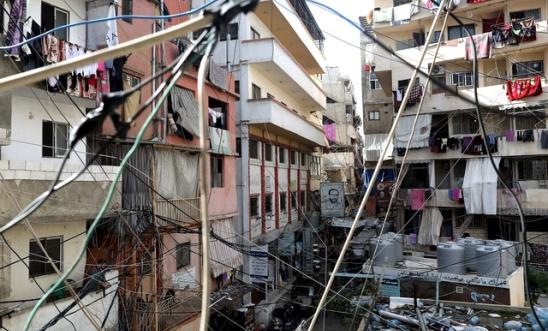
Press releases
Lebanon: Government must immediately stop ‘so-called voluntary returns’ of Syrian refugees

1,600 Syrian refugees face being returned from next week
Syrian refugees are at dire risk of torture, sexual violence, enforced disappearance and arbitrary detention if they return home
‘The authorities are knowingly putting Syrian refugees at risk of suffering from heinous abuse and persecution upon their return to Syria’ - Diana Semaan
Responding to the news that Lebanon's General Security agency will start sending Syrian refugees back to their country next week in a so-called voluntary process, Diana Semaan, Amnesty International’s Acting Deputy Director for the Middle East and North Africa, said:
“The Lebanese authorities are scaling up the so-called voluntary returns when it is well established that Syrian refugees in the country are not in a position to take a free and informed decision about their return due to the dire conditions in Lebanon.
"The authorities are knowingly putting Syrian refugees at risk of suffering from heinous abuse and persecution upon their return to Syria. Lebanon should respect its obligations under international law and halt its plans to return Syrian refugees.
“Amid the country’s spiralling economic crisis, the international community must continue to support more than one million Syrian refugees in Lebanon to prevent a further rise in unsafe returns.”
Refugees unlikely to be returning willingly
On 12 October, Lebanese President Michel Aoun said Lebanon’s General Security agency will start sending Syrian refugees back home “in batches” from next week. Major General Abbas Ibrahim, head of Lebanon's General Security, said that 1,600 Syrian refugees will be returned after the Syrian government approves.
International law prohibits constructive refoulement, which occurs when states use indirect means to coerce individuals to return to a place where they would be at real risk of serious human rights violations.
Amnesty believes that, in many cases, the Lebanese government’s unfair policies represent a fundamental factor in the decision to leave the country. In these cases, the refugee’s consent to repatriation cannot be considered free.
For the return of refugees to their country of origin to be truly voluntary, it must be based on their free and informed consent. However, the dire conditions in Lebanon raise doubts about the ability of Syrian refugees to provide truly free consent.
Refugees are at grave risk returning to Syria
Amnesty has previously documented how Syrian refugees have faced torture, sexual violence, enforced disappearance and arbitrary detention upon returning home. Those who left Syria at the beginning of the conflict are at grave risk of reprisals upon their return, due to their perceived political opinions or as a punishment for fleeing the country.